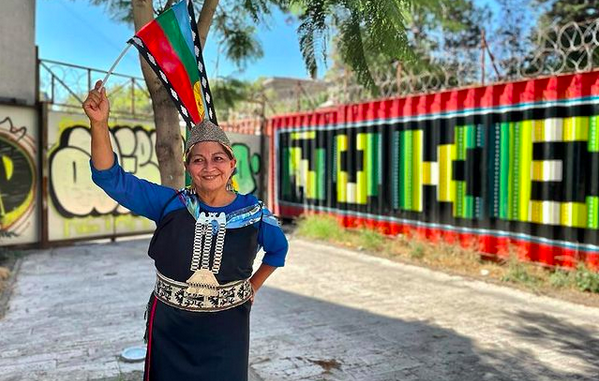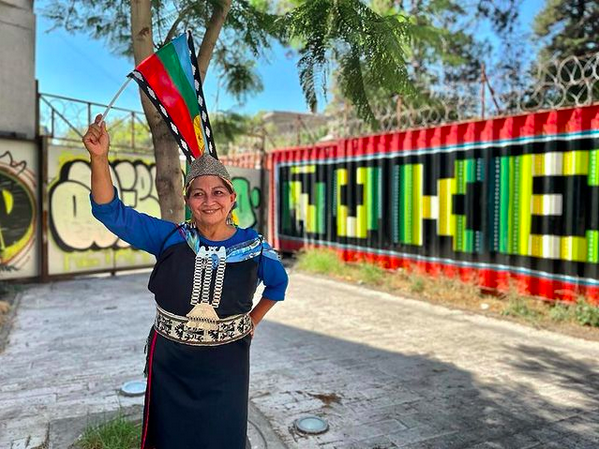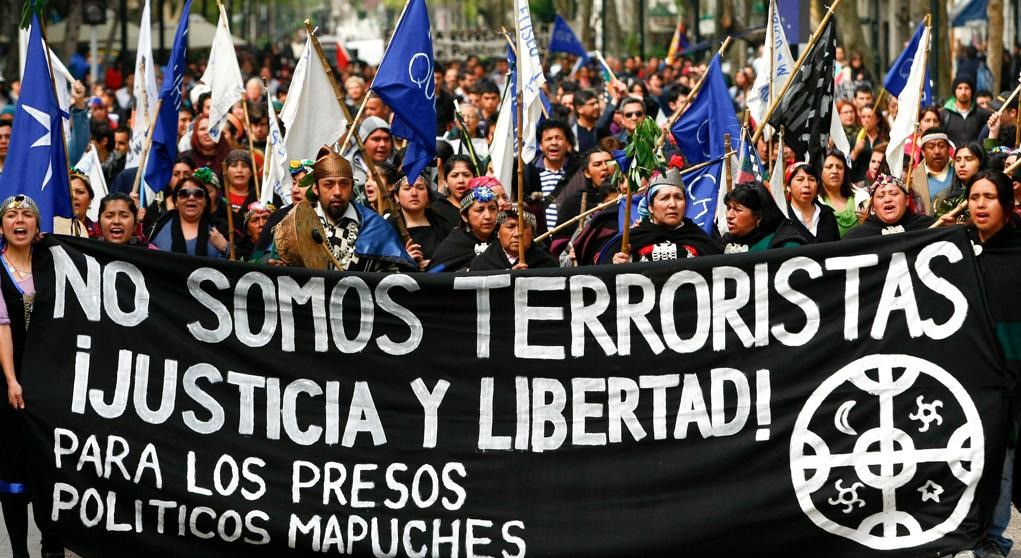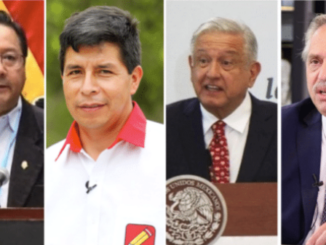
In a stunning election that was centuries in the making, a 58-year-old Mapuche academic named Elisa Loncón took the helm of a strategic political body in Chile.
Loncón won the presidency of an assembly that will oversee the writing of a new constitution, delivering a sucker punch to the South American country’s socially conservative political establishment.
“This convention I will be presiding over will transform Chile into an intercultural Chile that does not violate the rights of women, the rights of caregivers,” Loncón said in her electrifying acceptance speech on July 4. “…Into a Chile that takes care of Mother Earth, that keeps its waters clean against all domination. A very special greeting for the Mapuche lamgnen [sisters] in Wallmapu [Araucania]. This dream is our ancestors’ dream.”
Having garnered 96 out of 155 votes, she will be tasked with overseeing the formulation of a new framework that will replace the one enacted by U.S.-backed dictator General Augusto Pinochet in 1980, after the Chilean Junta (army, police, navy and air force) violently seized control of Chile in 1973 during a coup aided by the United States.
Despite Chile’s reputation as a politically stable country, tensions have been brewing since the start of the transition to democracy that commenced in 1990, after General Pinochet lost a referendum in 1988. Despite promises to right the wrongs of the regime, successive governments over the last 30 years have neither tackled lingering impunity nor reformed the economy. Extreme neoliberal policy enshrined in the constitution has led to the increase in social and economic disparity over the last three decades, with social apartheid becoming a symbol of Pinochet’s toxic legacy. A Gini coefficient (a measure of inequality) of 46 makes Chile one of the most unequal countries in the developed world, with the privatization of education and healthcare contributing to the gulf between the wealthy upper classes and the rest of Chilean society. Currently, the income gap stands at 65 percent, much higher than the Organization for Economic and Cooperation Development average. State pensions typically pay around $150 per month and an average wage of around $500 per month.
Powered by the People
On October 18, 2019, a simple student protest against a metro fare hike ignited a mass movement. Ordinary Chileans, exasperated with soaring inequalities, took to the streets in the millions across the country to demand social change. Central to protesters’ demands was the implementation of a new constitution guaranteeing freedoms and rights for the many, instead of for self-serving elites, who have benefited from decades of uninterrupted political power and the fruits of economic success.
During the onslaught of the protests, it’s estimated that hundreds suffered eye injuries at the hands of police. Student Gustavo Gatica, who was blinded at one of the protests, came to symbolize the dignified struggle for social justice. The threat of violence and imprisonment did nothing to deter a new generation of Chileans that felt they had little to lose but their dignity. Finally, in March 2020, President Sebastián Piñera conceded defeat and held a referendum on writing a new constitution. On October 25, 2020, Chileans—famous for their voter apathy—voted overwhelmingly in favor (78 percent). The conservative right’s dominance was set to crumble.
The Loncón Effect
The heralding of a new constitution kickstarted a series of blows to a fat-cat political establishment so enmeshed, that the right and left merged into an indistinguishable and hyper-privileged political class, of which Chilean congress members earn $23,000 per month.
Of the 155 members of the constitutional assembly, traditional parties across the political spectrum won only 38 seats. A marked shift to the left began to unfold. For the first time in 51 years, a truly representative body was elected, in which feminists, environmentalists, Indigenous people and grassroots working-class activists won an opportunity to shape Chile’s future. The election of Mapuche academic Elisa Loncón has been the icing on the cake.
A highly regarded linguist and Mapuche activist, Loncón has an impressive academic career that includes a degree in English at the University of La Frontera in Chile, and postgraduate studies at the International Institute of Social Studies in The Hague in the Netherlands, at the University of Regina (Canada) and at the UAM Iztapalapa in Mexico City. She has a Ph.D. from Leiden University in the Netherlands and a doctorate in literature from the Pontifical Catholic University of Chile. No mean feat for a woman born into poverty and social marginalization. Mapuche cultural resistance continues to thrive despite 500 years of systematic marginalization and discrimination.
The Mapuche make up around 12 percent of Chile’s 18.95 million people, although a significant portion of Chileans identify as Mestizos, those with mixed Indigenous and European heritage.
The quest for Mapuche autonomy and the right to live on ancestral lands, despite being enshrined in Chilean and international law, have been denied because the Southern territories are rich with natural resources and had been sold to local tycoons and multinationals. All attempts to recover ancestral lands are punishable under the 1984 terror act Pinochet enacted. As a result, hundreds of Mapuche community leaders are languishing in the prisons of Temuco, Angol and Lautaro.
A tradition of resistance flows through Loncón’s veins. Her father was active in land recuperation efforts during socialist President Salvador Allende’s administration and her great grandfather fought against colonial invasion during the 1800s.
The Unstoppable Rise of the Left
The election of Loncón is not the only nail in the establishment’s coffin. Communist economist Iraci Hassler, 30, was elected mayor of Santiago in May 2021 and communist politician Daniel Jadue, mayor of Recoleta, who created a “people’s pharmacy,” is a strong contender to win the presidency in the November elections.
Chile’s path to transformation can be directly attributed to grassroots organizing and relentless demands for fundamental change. Perhaps, after having endured a brutal dictatorship, 30 years of empty promises, nepotism and fierce austerity, the deadwood can finally be cut away and an inclusive people’s democracy will finally emerge from the rubble.
Carole Concha Bell is an Anglo-Chilean writer and Ph.D. student at King’s College London.











